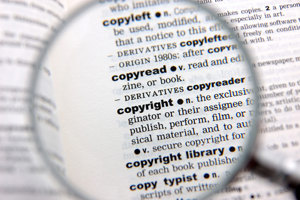Joint and several liability for IP infringement - Directors beware
When are a company’s directors jointly liable for the acts committed by the company and, if found so liable, what is the financial impact of this? These were two questions considered by the Court of Appeal in Lifestyle Equities v Ahmed [2021] EWCA Civ 675. The case provides useful guidance on calculating an account of profits and serves as a warning to directors that, in issues of intellectual property infringement in particular, it may not be possible to hide behind a corporate structure.
The key facts
The appeal related to a trade mark dispute where a group of sixteen defendants were found to have infringed the claimants’ registered trade marks for BEVERLY HILLS POLO CLUB. The appeal did not focus on the issues of infringement, but on whether two of the individual defendants – Mr Ahmed and his sister Ms Ahmed – were jointly and severally liable for the acts of infringement of a defendant company of which they were directors (as had been held by the lower court).
The appeal also focused on whether the Ahmeds should be liable for the whole profits made by the relevant defendant company, or only for the profits they personally made. This was clearly an important point for the claimants as, since the finding on liability, the defendant company had gone into insolvent administration and so could not be pursued directly. If the defendant company profits were obtainable from the individual defendants then the claimants were looking to recover sums in excess of £3 million. However, if liability only extended to the individuals’ acts then more modest figures were in issue.
Account of Profits
An account of profits is a well established equitable remedy awarded at the discretion of the court. In intellectual property proceedings, it is the norm for the issue of infringement to be determined in the first instance with the successful claimant then invited to elect its remedy of either damages or an account of profits, following an enquiry to determine the sums involved.
Following a consideration of the authorities, the Court of Appeal concluded that the first instance judge was correct in his finding that the Ahmeds were only liable to account for the profits that they had personally made and not those made by the (now dissolved) defendant company:
“the liability to account for profits is a liability to account for the profits that the person liable has actually derived from the wrongful conduct which has made them liable in the first place”.
Joint and several liability
Having ruled on this point of the appeal, the Court went onto consider whether the lower court was correct to find Mr and Ms Ahmed personally liable i.e. whether they had each authorised or procured the acts of infringement of the company and/or acted pursuant to and in furtherance of a common design to enable such acts to take place.
The lower court had ruled that Mr Ahmed was jointly and severally liable with the defendant company for the infringing acts. He was the Managing Director of the family owned SME and took a close, active and personal part in the activities found to infringe. Ms Ahmed was not found liable for the wider infringing activity of the company but only for the infringement by a division of the company for which she had hands on responsibility, called ‘House of Brands’.
The Court of Appeal confirmed the lower court’s decision and in effect posed and answered two questions:
- Whether the individual’s conduct would make them liable as an accessory in any event, irrespective of their status as a director?
- Whether the fact that person is a director of the company means they have a defence open to them?
In respect of the second question, it was noted that the answer is, “they may do so”, but only if the conduct which has made them potentially liable amounts to no more than carrying out their constitutional role in the governance of the company. The existing authorities – in particular MCA Records Inc. v. Charly [2002] FSR 26 – were not so prescriptive as to limit the carrying out of a director’s constitutional role to simply voting at board meetings, but it was clear that only a narrow exception was what was in mind.
Importantly, the fact that a director is still acting in accordance with his fiduciary duties and within the authority given to him/her as a director will not absolve him/her of responsibility and is no defence – everyone should be answerable for their tortious acts.
In this case, the close personal involvement by the Ahmeds in the acts of trade mark infringement could not be defended. It was irrelevant that neither of them had an improper motive to commit the acts of infringement (intention not being a relevant element of the tort) and nor did it matter to the Court that Mr Ahmed delegated certain tasks (including the design of the infringing logo to a professional design team), or that the company was not a “one man band”.
How much?
The lower court had ordered the Ahmeds to pay the claimants 10% of their salaries from the company (representing the proportion linked to the infringing activities) and in respect of Mr Ahmed the further sum of £635,789 which represented a loan to him from the company.
In weighing up the suitably of the account of profits award, the appeal Court noted that the loan was an obligation on Mr Ahmed to pay that sum and so did not represent a profit in Mr Ahmed’s hands at the time of the trial. Unfortunately for the claimants, although the Ahmeds had confirmed (by way of administrator’s report submitted after the judgment was handed down but prior to the hearing to determine the final order) that the administrators would not be pursuing any connected parties for monies owed to the defendant company, the claimants had objected to this as “new evidence” and the court had not allowed it in. The claimants could therefore not subsequently rely on it as proof that the loan was no longer owing to the defendant company and so was indeed profit held by Mr Ahmed.
However, the Court of Appeal disagreed with the Ahmeds’ arguments that salary cannot be treated as profit. The fact that a profit might be earned in a transaction in which consideration is given (i.e. Mr and Ms Ahmed’s time as ‘consideration’ for payment) is irrelevant. The Court ruling that in the circumstances, the only overheads/sums able to be deducted from the 10% figure was for income tax.
What does this mean going forwards?
While it is relatively common to attempt to include a director/sole shareholder of a company as a co-defendant when litigating against “one man band” outfits this case would suggest that the practice may now be more readily adopted with more sizeable/complex companies too. This judgment makes it clear that where a director is found to have acted as an accessory to infringement the fact that an individual is acting in his/her capacity as a director of the company will generally not “save” them.
The case also importantly clarifies that while an account of profits is an equitable remedy it is only in exceptional circumstances that it would not be awarded. In this case, the fact that the Ahmeds did not intend to infringe and were not acting in bad faith/had no improper motive did not matter; the remedy is not limited to cases of unconscionable behaviour only.
It is relatively unusual for IP cases to progress to a fully contested damages/loss of profit enquiry; the parties often agreeing to settle the matter once the positon on liability has been decided. This case shows that arguing the point can be a substantial fight in and of itself. A claimant will need to think carefully as to what its goal is and in certain situations may be better advised to pursue damages (rather than an account of profits) as an individual defendant, vis a vis the claimant, would be liable for all rather than just their “share” of these.







































